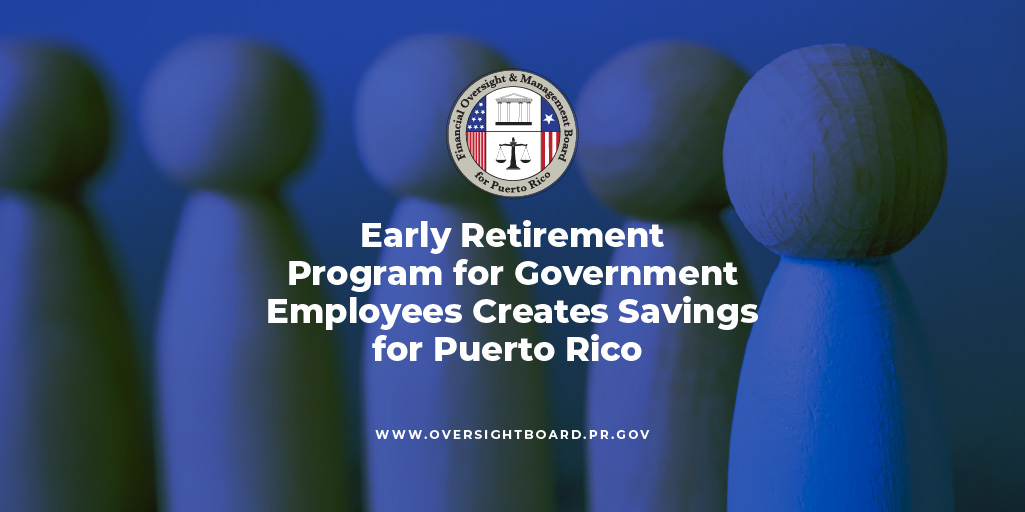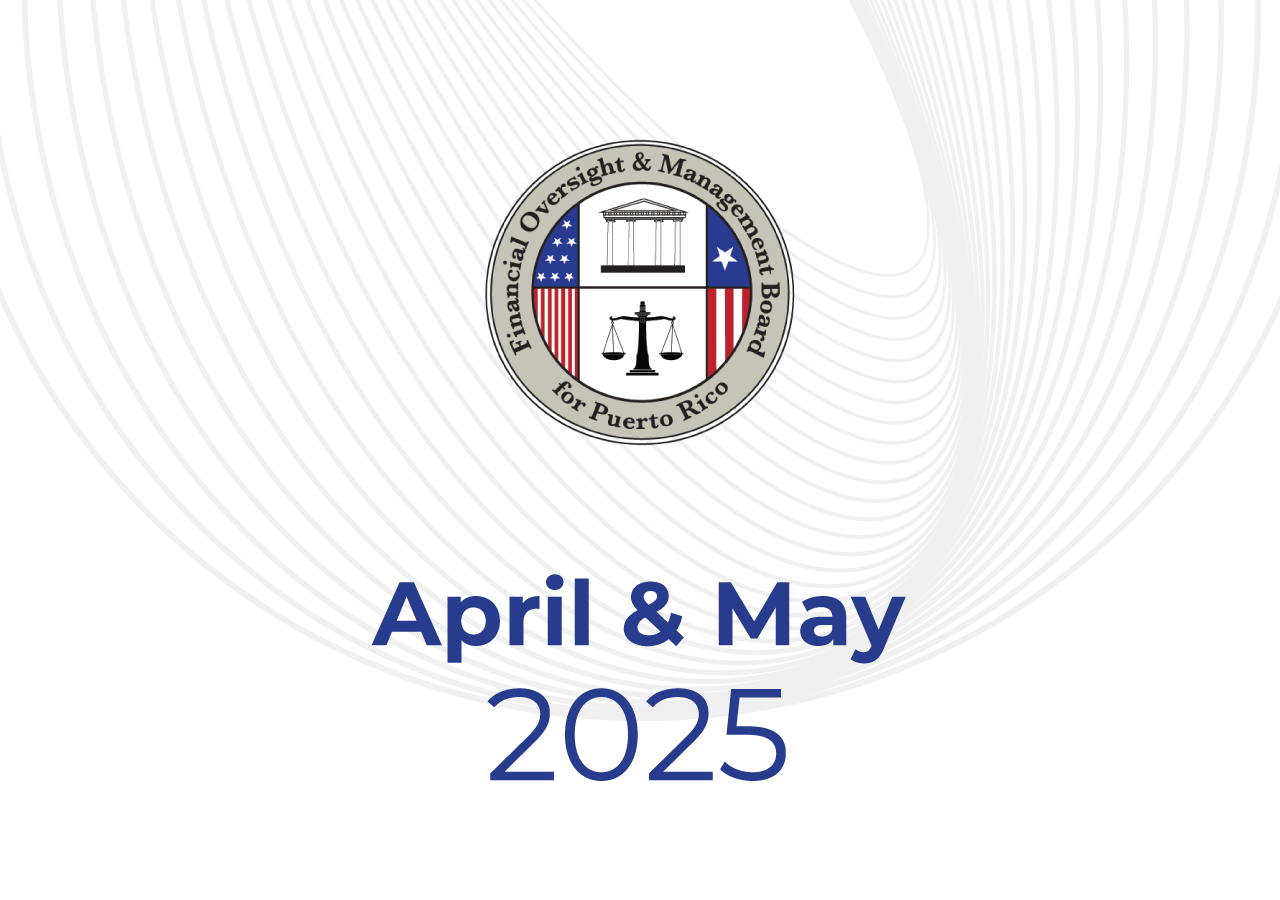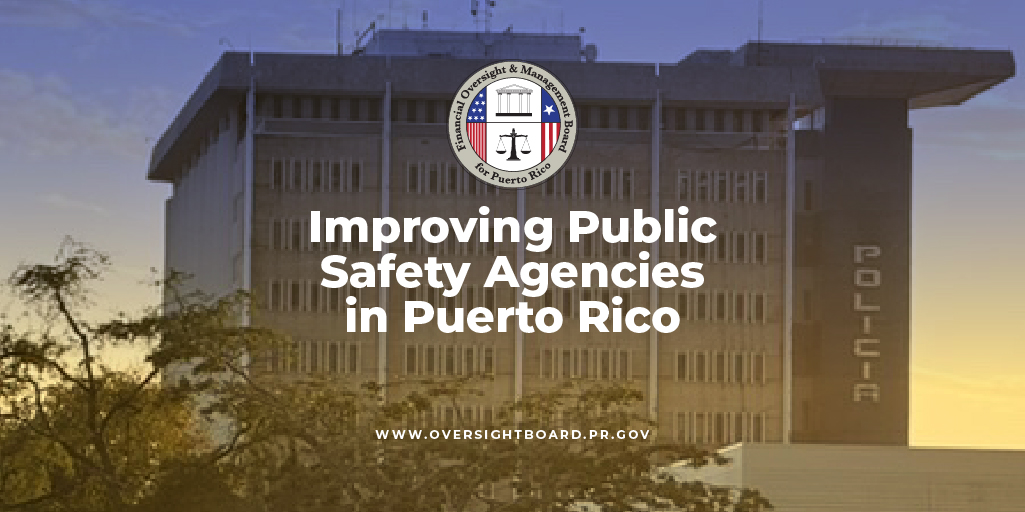When Act 80-2020 was signed by then-Governor Wanda Vázquez Garced, it was immediately clear that the law could never be fully implemented. The law promised additional retirement benefits for certain government employees, and its costs were prohibitive. In December 2021, the U.S. District Court for the District of Puerto Rico issued an order invalidating Act 80.
So, the Oversight Board and the administration of Governor Pedro R. Pierluisi went to work to find a path to implement at least part of the law in a way that Puerto Rico could afford. It wasn’t easy, but in September 2023 the Court approved an interim stipulation that established an agreed-upon roadmap for partial implementation. After a lot of heavy lifting behind the scenes, we are almost at the point where eligible government employees can participate in the Act 80 early retirement program. A final stipulation to document the agreement was filed with the U.S. District Court for the District of Puerto Rico on Feb 26, 2024. The goal is for eligible employees to be able to retire in spring of 2024.
Early retirement programs are not a “reward” for government employees. The primary goal of this early retirement program is to incentivize employees to leave their jobs before they are eligible for retirement so that their positions can be eliminated from the payroll. Such a programs can save taxpayer money, provided the impacted positions are permanently eliminated. Accordingly, the Government and the Oversight Board worked to ensure that Act 80 would only be implemented if it would achieve government savings.
That means the Government had to decide which positions it could eliminate (so called “non-essential” positions), and which position it could not eliminate because the services Puerto Ricans would suffer if those positions were eliminated.
For “essential” positions, the Government must hire a new employee to replace each person who retires in order to maintain key services. If those essential employees were to retire early, the Government would end up paying the early retirement benefits of the retired employees and the salary of their replacement. In other words, implementing a broad early retirement program for employees who need to be replaced would drive up costs rather than generate savings for the Government. The stipulation specifies that once an eligible worker retires from a non-essential position, the Government cannot hire for that position or a position with similar functions again.
That is why, under the stipulation, early retirement was offered only to the employees occupying non-essential positions. The Government and the Oversight Board agreed that Act 80 can only be implemented to the extent that the Government can continue to provide essential services efficiently even as some Government employees retire early.
What positions were not eligible for early retirement? Positions that provide direct services to Puerto Ricans, and positions that provide critical management duties. Examples of such essential positions are nurses and other healthcare staff, rangers, public safety personnel, permits agents, property registry technicians and supervisors.

An essential position is a position that needs replacement and, if eliminated, would affect the services that the agency provides.

A non-essential position within government is one that does not need replacement for the continuity of services provided.
The Government has taken great care to complete the complicated and time-consuming task of identifying which positions could be eliminated and which must be retained. Employees were offered the opportunity to indicate their interest in retiring early, and then the Government evaluated positions in each of the entities where employees originally opted to retire early through Act 80.
These include positions that are part of the central Government and positions within the following public corporations: the Public Corporation for Supervision and Insurance of Cooperatives of Puerto Rico (COSSEC), the Municipal Revenues Collection Center (CRIM), the Puerto Rico Industrial Development Company (PRIDCO), and the Highways and Transportation Authority (HTA).
The list of positions eligible for early retirement through Act 80 has been finalized and now the Oversight Board and the Government are working on reaching an agreement on final outstanding items in order to partially implement Act 80.
Over a thousand employees who occupy non-essential positions have chosen to take advantage of the benefits offered through the Act 80 program. Employees who are not given the opportunity to retire under the Act 80 program will still be entitled to receive their existing government pensions, Social Security benefits, and income from their Act 106 accounts once they reach the age and years of service required for retirement.
The Government and the Oversight Board also agreed that a portion of the savings from the elimination of positions due to early retirements will be deposited into the Pension Reserve Trust to help fund the increase in pension payments to Government employees from PayGo due to partial implementation of Act 80.
The Oversight Board and the Government have made great efforts to achieve the timely completion of the agreed schedule and have been working together over many months to identify the last remaining issues to be able to move forward.










